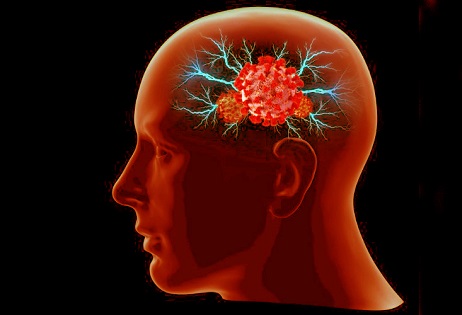Nikhil Prasad Fact checked by:Thailand Medical News Team Nov 07, 2024 5 months, 5 days, 22 hours, 39 minutes ago
Medical News: Researchers from the Institute of Biochemistry and Cell Biology in Rome and the Department of Experimental Medicine at Sapienza University, Italy, recently explored the crucial role of nerve growth factors in understanding COVID-19's lingering neurological and immune effects. They focused on two proteins, NGF (Nerve Growth Factor) and BDNF (Brain-Derived Neurotrophic Factor), which have been pivotal in both brain and immune health. While COVID-19’s initial symptoms, like cough and fever, affected millions, emerging long-term effects, or “long COVID,” continue to concern scientists. This
Medical News report dives into how NGF and BDNF might connect the dots between COVID-19 and its impact on our brain and nervous system.
 Neurotrophins' Role in COVID-19 Brain Impact and Recovery
The Discovery of NGF and BDNF
Neurotrophins' Role in COVID-19 Brain Impact and Recovery
The Discovery of NGF and BDNF
NGF’s journey in the world of neuroscience started in the 1950s when scientists discovered its role in developing brain cells. By the 1980s, BDNF was identified, which had similar functions, especially for the brain's learning and memory areas. Both NGF and BDNF support neuron growth, brain flexibility, and immune response. These proteins are “neurotrophins,” key players in keeping brain cells healthy, regulating immune functions, and controlling inflammation.
COVID-19’s Neuro-Immune Connection
As COVID-19 spread globally, researchers saw an uptick in neurological and psychological issues, from “brain fog” to anxiety and depression. Scientists propose that NGF and BDNF disruptions might explain why COVID-19 can have such long-lasting effects on mental health. COVID-19’s severe inflammatory response, or “cytokine storm,” could disrupt the usual NGF and BDNF levels, contributing to ongoing symptoms in long COVID cases.
Study Findings on NGF and BDNF During COVID-19
During the pandemic, studies revealed that COVID-19 patients, especially those with severe symptoms, often had lower BDNF levels. A significant study in Italy found that elderly COVID-19 patients with lower BDNF levels had worse outcomes, suggesting that BDNF might be a predictor of severity. Later studies linked decreased BDNF levels to the necessity for oxygen therapy, highlighting BDNF’s potential role in respiratory complications. Some studies, however, found increased BDNF levels in severe cases, suggesting that inflammatory responses might vary widely between individuals.
The Long COVID Impact
Long COVID has emerged as a pressing issue, affecting cognition and emotional well-being. Studies showed reduced BDNF levels in individuals with cognitive impairments post-COVID-19, indicating that this neurotrophin could play a role in “brain fog.” In a study that included both male and female patients, males showed more significant reductions in BDNF levels, hinting at possible gender-specific responses to COVID-19. Interestingly, physical exercise, known to increase BDNF levels
, has been proposed as a therapeutic strategy for those experiencing long COVID symptoms.
Neurotrophins in Pregnancy and Child Development
A fascinating area of study is the impact of COVID-19 on pregnant women and potential effects on newborns. Recent research examined BDNF levels in the blood and umbilical cords of COVID-19-positive mothers and found lower BDNF levels in these women. However, their newborns had BDNF levels similar to those born to non-infected mothers, suggesting protective mechanisms at work. These studies highlight that while COVID-19 impacts maternal BDNF, it might not necessarily harm fetal neurodevelopment.
NGF and BDNF in Non-Neuronal Tissues
The effects of NGF and BDNF go beyond the nervous system. Both proteins also impact immune cell behavior. NGF is particularly influential in immune cells like macrophages, which play a role in fighting infections. BDNF, too, has been found in various tissues beyond the brain, such as the heart and blood vessels. This suggests that NGF and BDNF could regulate immune responses in COVID-19, potentially balancing inflammation during severe infections.
Microglia Activation and Neuroinflammation
Microglia are immune cells in the brain responsible for maintaining brain health, clearing away debris, and managing inflammatory responses. When COVID-19 invades the nervous system, it activates microglia, resulting in increased inflammation and possible damage to neurons. This heightened microglial response can decrease NGF and BDNF levels, potentially contributing to the fatigue, memory loss, and brain fog reported in long COVID sufferers. Studies are ongoing to understand how controlling microglial activity might alleviate these symptoms and restore NGF and BDNF balance.
Potential Therapeutic Approaches
The study suggests that treatments targeting NGF and BDNF pathways could hold promise for managing COVID-19’s neurological impacts. For example, therapies that boost BDNF could counter cognitive symptoms and support brain repair. Modulating NGF, on the other hand, could help balance immune responses in severe COVID-19 cases, potentially reducing inflammation and supporting tissue healing.
Conclusions
The global impact of COVID-19 has shed light on the vital roles that NGF and BDNF play not only in brain health but also in immune responses. By understanding how COVID-19 alters these proteins, researchers may be able to develop therapies that target the neurological and psychological effects of the virus. NGF and BDNF represent potential treatment avenues, particularly for long COVID symptoms affecting cognition and mood. The interplay between these neurotrophins and the immune system opens up new paths for COVID-19 research. Future studies will be critical to uncovering how NGF and BDNF modulation can aid in recovery from COVID-19’s complex effects on the nervous system.
The study findings were published in the peer-reviewed journal: Biology.
https://www.mdpi.com/2079-7737/13/11/907
For the latest COVID-19 News, keep on logging to Thailand
Medical News.
Read Also:
https://www.thailandmedical.news/news/new-insights-into-neurocovid
https://www.thailandmedical.news/news/sars-cov-2-proteins-linked-to-brain-inflammation-and-neurodegeneration
